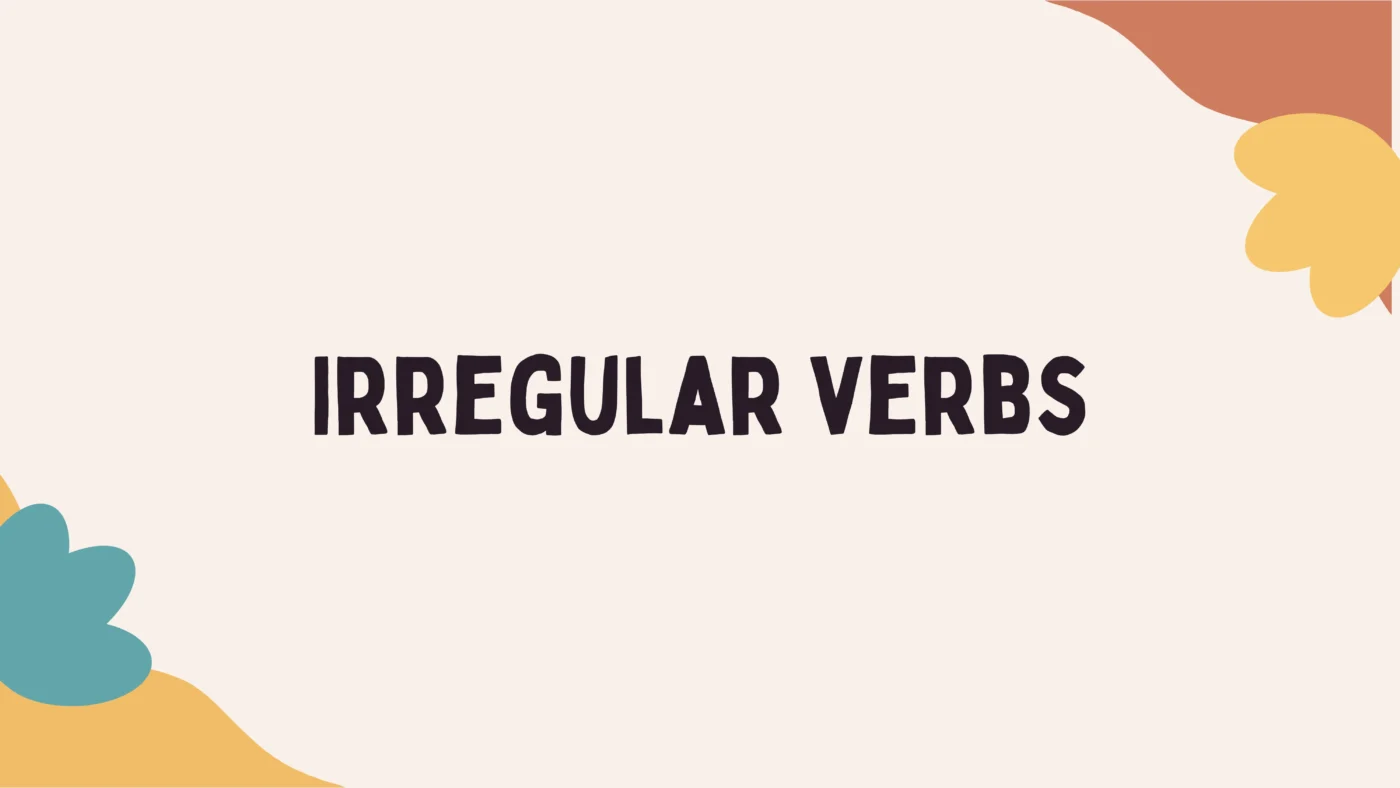In French, verbs are categorized based on their endings: -er, -ir, and -re. The -re verbs constitute the smallest group, falling into the third category. Examples include “attendre” (to wait) and “vendre” (to sell). While -er and -ir verbs are more common, -re verbs maintain distinct conjugation patterns, often involving irregularities compared to the other groups.
Conjugating Regular -re Verbs in the Present Tense
Let’s break down the conjugation of regular -re verbs in the present tense using the verb “vendre” (to sell) as an example.
Step-by-step guide:
1. Identify the infinitive verb: vendre
2. Remove the infinitive ending (-re) to find the stem:
- vendre → vend-
3. Add the appropriate present tense endings to the stem:
- je (I): -s
- tu (you, singular informal): -s
- il/elle/on (he/she/one): –
- nous (we): -ons
- vous (you, plural/formal): -ez
- ils/elles (they, masculine/feminine): -ent
Conjugation Table:
| Subject Pronoun | Ending | Example: “Vendre” |
| Je (I) | -s | Je vends |
| Tu (You) | -s | Tu vends |
| Il/Elle/On (He/She/One) | – | Il/Elle/On vend |
| Nous (We) | -ons | Nous vendons |
| Vous (You/Plural) | -ez | Vous vendez |
| Ils/Elles (They) | -ent | Ils/Elles vendent |
Explanation of the Process
1. Remove the -re ending:
- From “vendre,” removing -re gives the stem “vend-“.
2. Add present tense endings:
- For “je,” add -s: je vends
- For “tu,” add -s: tu vends
- For “il/elle/on,” add nothing: il/elle/on vend
- For “nous,” add -ons: nous vendons
- For “vous,” add -ez: vous vendez
- For “ils/elles,” add -ent: ils/elles vendent
For any regular -re verb, like “vendre”, remove the -re ending to find the stem and then add the appropriate endings for each subject pronoun to form the present tense conjugation.
List of Common Regular -re Verbs:
Attendre (to wait)
- J’attends,
- Tu attends,
- Il/Elle/On attend
- Nous attendons
- Vous attendez
- Ils/Elles attendant.
Perdre (to lose)
- Je perds
- Tu perds
- Il/Elle/On perd
- Nous perdons
- Vous perdez
- Ils/Elles perdent
Répondre (to answer)
- Je réponds
- Tu réponds
- Il/Elle/On répond
- Nous répondons
- Vous répondez
- Ils/Elles répondent
Entendre (to hear)
- je entends (j’entends)
- tu entends
- il/elle/on entend
- nous entendons
- vous entendez
- ils/elles entendent
Descendre (to descend/go down)
- je descends
- tu descends
- il/elle/on descend
- nous descendons
- vous descendez
- ils/elles descendent
Fondre (to melt)
- je fonds
- tu fonds
- il/elle/on fond
- nous fondons
- vous fondez
- ils/elles fondent
Pendre (to hang)
- je pends
- tu pends
- il/elle/on pend
- nous pendons
- vous pendez
- ils/elles pendent
Grammar Rules Got You Down?
La Forêt’s tutors simplify grammar so you can speak confidently and accurately.
Irregular -re Verbs
Irregular -re verbs in French do not follow the standard conjugation pattern of regular -re verbs. Instead, they exhibit unique changes in their stems or endings, making their conjugations more complex. Here is an identification of common irregular -re verbs and their conjugation complexities.
Common Irregular -re Verbs and Their Conjugations
Prendre (to take)
- je prends
- tu prends
- il/elle/on prend
- nous prenons
- vous prenez
- ils/elles prennent
Complexity: The verb “prendre” and its derivatives (comprendre, apprendre, etc.) have a stem change in the singular forms and a double “n” in the third-person plural form.
Mettre (to put)
- je mets
- tu mets
- il/elle/on met
- nous mettons
- vous mettez
- ils/elles mettent
Complexity: The verb “mettre” and its derivatives (permettre, promettre, etc.) have a double “t” in the plural forms.
Dire (to say)
- je dis
- tu dis
- il/elle/on dit
- nous disons
- vous dites
- ils/elles disent
Complexity: “Dire” has an irregular “vous” form (“vous dites”) which does not follow the expected pattern.
Conduire (to drive)
- je conduis
- tu conduis
- il/elle/on conduit
- nous conduisons
- vous conduisez
- ils/elles conduisent
Complexity: The verb “conduire” and its derivatives (traduire, produire, etc.) have a stem change in the plural forms.
Craindre (to fear)
- je crains
- tu crains
- il/elle/on craint
- nous craignons
- vous craignez
- ils/elles craignent
Complexity: “Craindre” and similar verbs (peindre, éteindre, etc.) have a stem change in the plural forms and include “gn”.
Boire (to drink)
- je bois
- tu bois
- il/elle/on boit
- nous buvons
- vous buvez
- ils/elles boivent
Complexity: “Boire” has a stem change to “buv-” in the plural forms and “boiv-” in the third person plural form.
Irregular -re Verbs Without a Clear Pattern:
Some irregular -re verbs do not fit into any clear pattern and must be memorized individually. Examples include:
Rire (to laugh)
- je ris
- tu ris
- il/elle/on rit
- nous rions
- vous riez
- ils/elles rient
Vivre (to live)
- je vis
- tu vis
- il/elle/on vit
- nous vivons
- vous vivez
- ils/elles vivent
Plaire (to please)
- je plais
- tu plais
- il/elle/on plaît
- nous plaisons
- vous plaisez
- ils/elles plaisent
Conclusion
Mastering regular -re verbs is crucial for achieving proficiency in the French language. These verbs constitute a significant portion of everyday vocabulary and are used in various contexts. Understanding their conjugation patterns provides a solid foundation for building more complex sentences and expressing oneself accurately in French.
Continued practice and exploration of verb conjugations, especially regular -re verbs, enhance language skills and fluency. It allows learners to internalize grammar rules, develop a natural feel for the language, and communicate effectively in spoken and written French. Additionally, as irregular -re verbs exist, mastering the regular ones lays the groundwork for understanding and tackling irregularities more confidently.
Check out our articles on Regular -er Verbs and Regular -ir Verbs.
Learn French with La Forêt French Class to make the journey easier for you. Our expert tutors can help you with all the tips and tricks to learn the language. Check out our DELF Course to begin learning now!
Frequently Asked Questions
1. What are the examples of -re verbs in French?
Here are some examples of regular -re verbs in French, along with their meanings:
Attendre – to wait
Vendre – to sell
Perdre – to lose
Répondre – to answer
Descendre – to descend/to go down
Entendre – to hear/to understand
Rendre – to give back/to return
Défendre – to defend/to forbid
Fondre – to melt
Permettre – to permit/to allow
2. Is être regular or irregular?
“Être” (to be) is an irregular verb in French. It doesn’t follow the regular conjugation patterns of most verbs. Its conjugation in the present tense is:
- Je suis (I am)
- Tu es (You are)
- Il/Elle/On est (He/She/One is)
- Nous sommes (We are)
- Vous êtes (You are)
- Ils/Elles sont (They are)
As you can see, the forms don’t follow a predictable pattern like regular verbs do.
3. Is boire regular or irregular?
“Boire” (to drink) is irregular in French. Its conjugation deviates from the regular -re verb pattern. Here’s the conjugation of “boire” in the present tense:
- Je bois (I drink)
- Tu bois (You drink)
- Il/Elle/On boit (He/She/One drinks)
- Nous buvons (We drink)
- Vous buvez (You drink)
- Ils/Elles boivent (They drink)
Notice the irregularity in the stem change from “boir-” to “buv-” in the singular forms (except for the third person singular). This irregularity makes “boire” an irregular -re verb in French.
4. What are the 6 forms of être?
The six forms of the verb “être” (to be) in French, conjugated in the present tense, are:
- Je suis (I am)
- Tu es (You are)
- Il/Elle/On est (He/She/One is)
- Nous sommes (We are)
- Vous êtes (You are)
- Ils/Elles sont (They are)
These forms represent the different subject pronouns in French, each corresponding to a specific person or group of people.





